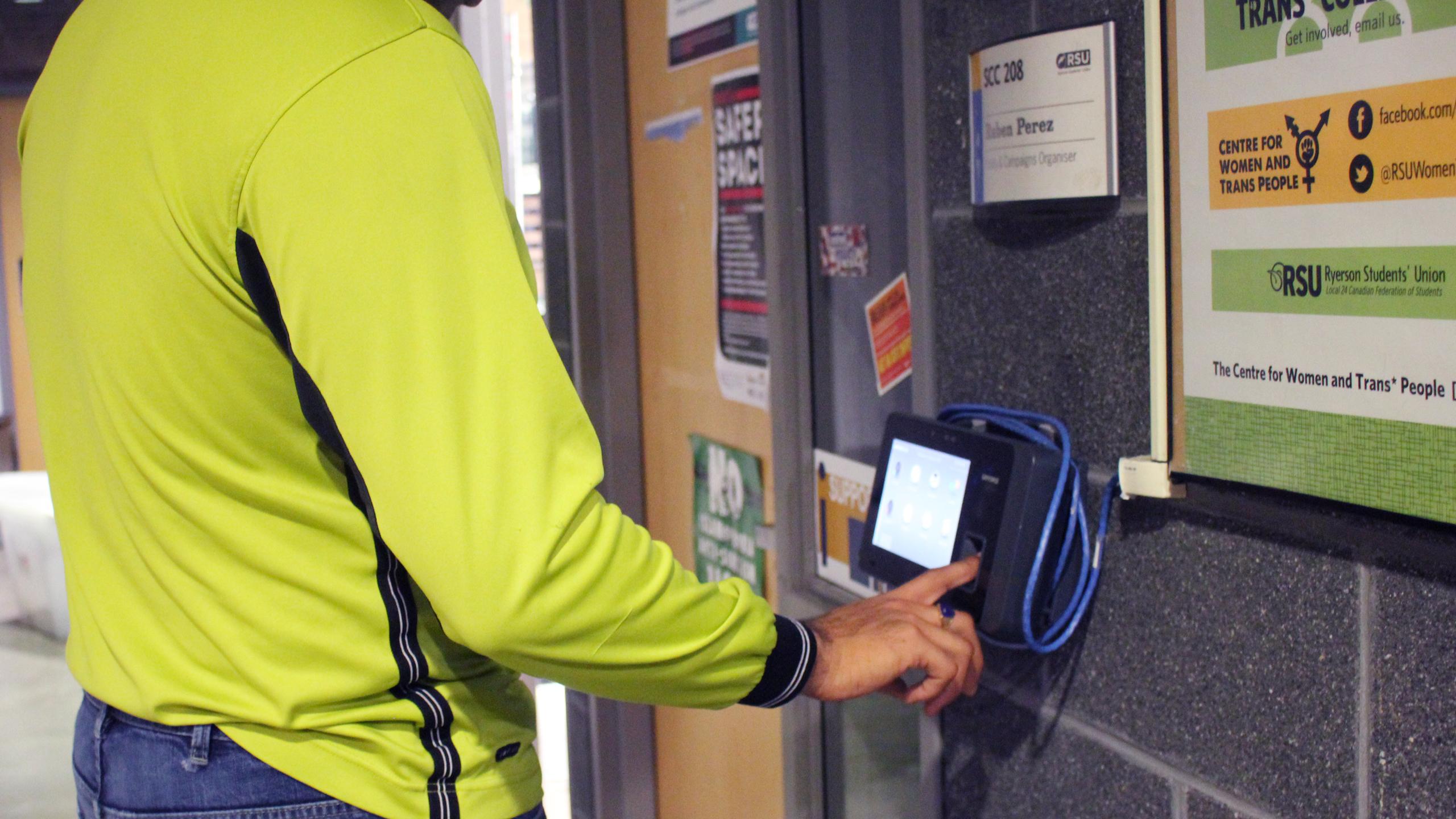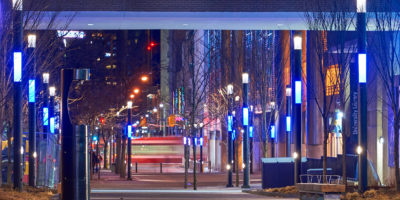By Emma Sandri and Maggie Macintosh
Ryerson Students’ Union (RSU) employees are now signing in and out of work with the touch of a finger.
Over the summer, three fingerprint scanners were installed in the Student Campus Centre (SCC) in order to keep track of employee hours.
“We’ve put a lot of work into implementing this as it is a big part of our mandate to digitize the RSU and reduce the amount of paper we use,” RSU president Ram Ganesh wrote in a statement.
The RSU ordered the scanners more than two years ago—at a price tag of $2,500 per unit. They were installed during the first month of the current executive’s term, according to Ganesh. The tech was then rolled out to the rest of the RSU staff in multiple phases.
“My question is, does the RSU have a problem that warrants this technology?” said Robert Hudyma, an information security expert and associate professor at the Ted Rogers School of Management. The RSU wanting to digitize the space is, “kind of a weak excuse,” Hudyma said.
Having worked as a security consultant for the federal government, he said government employees sometimes have to use both their fingerprint and a passcode to access laptops. Data centres also use biometrics, Hudyma added.
Biometrics—physical or behavioural characteristics used to identify an individual—such as fingerprint scanners are increasingly common, according to the Information and Privacy Commissioner of Ontario (IPC).
“Fingerprints and facial images are matched against databases to identify persons of interest, and used by individuals to authenticate their identities and to access computing devices or physical spaces,” IPC states on their website.
The RSU previously used manual timesheets to keep track of hours.
CopyRITE, the RSU executive office and the Equity Service Centres each have their own fingerprint scanners for employees.
“To me, it’s a really unnecessary form of surveillance—especially in a space like this. The way the equity services operate, they’re not like a business or anything, they’re a community service,” said Sheldomar Elliott, a coordinator at the Racialised Students’ Collective.
Although he understands that the RSU wants to track accountability and improve efficiency, Elliott said the sign-in procedure no longer rests on a trusting relationship between staff and employees—a concept at the core of the Equity Service Centres.
“I’m just here to provide a safe space for folks. It’s not that serious. I’m not dealing with high-end tech stuff,” he said. “I wish we could just stick with the timesheets and make workers know that this is a trust-based initiative.”
Currently in Ontario, the Office of the Privacy Commissioner recommends employers use a four-part test to determine if biometrics are appropriate for their workplace.
The test asks organizations to assess whether or not the benefit of implementing biometrics outweighs the potential loss of employees’ privacy.
“We’re going to wait [until] the end of the year to get feedback from the supervisors as to how effective [or] ineffective this system was,” wrote Ganesh. “Depending on their feedback, we’re going to make that decision on adding or removing scanners.”
Aside from installation and equipment costs, the fingerprint scanners will have “minimal” maintenance fees, said Ganesh.
Ryerson staff do not use fingerprint scanning machines, according to president Mohamed Lachemi.
“That’s not a practice that we have at Ryerson and I hope we will not have it in the future,” said Lachemi.
The scanners are part of Ceridian Dayforce software. Ceridian did not respond to request for comment in time for publication.
With files from Sherina Harris.










Leave a Reply